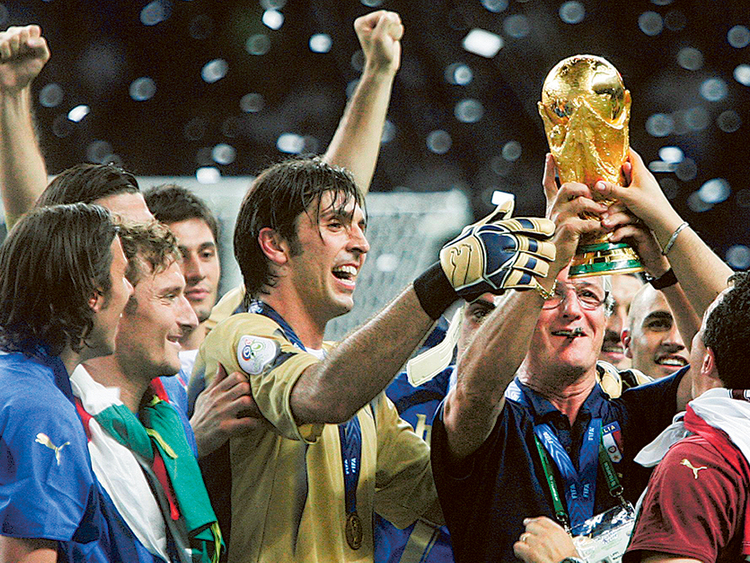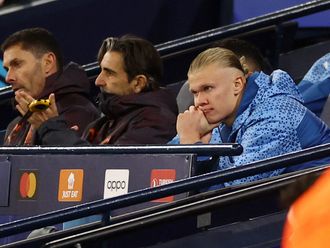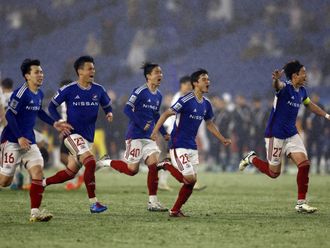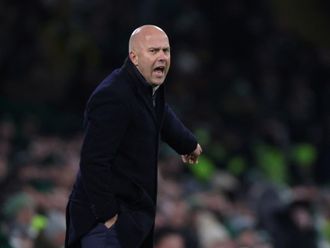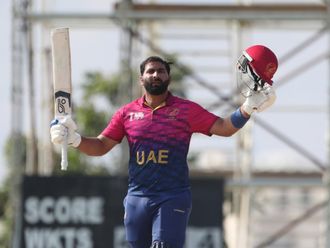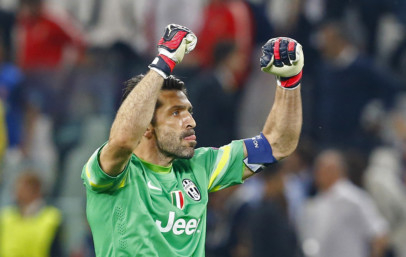
Turin: Gigi Buffon’s first thought on reaching the second Champions League final of his long career was about “the irony” of the venue.
“Destiny must be at work,” he decided. “From Berlin to B, and from B to Berlin,” Buffon explained.
The B stands for Serie B, Italy’s second division, which is where Buffon was employed immediately after his last, glorious expedition to the German capital, where his Juventus side will play Barcelona in the Champions League final on Saturday.
B might also stand for Bari, where six weeks after winning the 2006 World Cup in Berlin, Buffon lined up for Juventus in the first round of Coppa Italia, several phases of the competition before the big clubs usually come in, against a team called Martina Franca, of Serie C.
In front of him was a much-changed XI from the one he had known in his first five Juve years. No more Fabio Cannavaro and Lilian Thuram as his sentries. No Patrick Vieira shielding them. No Zlatan Ibrahimovic up front. They had all left on learning that Juve were to be demoted as punishment for club executives systematically manipulating match officials.
The Calciopoli scandal stripped Juve of their 2005 and 2006 scudetti, Italian titles, plunged them into the second division, where they started bottom on -9 points, and drove superstars elsewhere. The Juventus players involved in that Berlin World Cup final — all eight of them — knew with gathering certainty through the tournament that something heavy awaited them. They had learnt what sort an emotional impact it could have when a teammate Gianluca Pessotto fell from the fourth storey of the club’s offices in what looked like an attempt to take his own life. Pessotto survived and now works as a team manager in the club’s youth system.
Buffon, 37, stuck with Juve after Berlin because he found the arguments put to him by the club’s reformed management persuasive. They spoke of a new, cleaned-up Juventus, allying the resilience that is part of the club’s fabric with progressive plans. If he stayed through the obscure spell in Serie B, weathered the two-year ban from Uefa competitions, he could, he was told, look forward to a dynamic future, even to leading the team in a brand new stadium, owned and not rented, by the time he was 35.
For a goalkeeper, the decision might have been easier, the career risks from a relegation less severe than for an outfield player. After all, Buffon would still have shots to save in Serie B, wouldn’t he? After their opening nine matches, Juve had conceded just two goals. Buffon had not been very busy. Juve cruised as a second division team.
As Buffon patrolled his six-yard box against teams like Crotone and Albinoleffe, waiting for the rare moment an opposition striker might find a way past Giorgio Chiellini, he started to hear unfamiliar sounds. “My best memory of Serie B is the public,” Buffon wrote in his autobiography, ‘Numero Uno.’
“At Juventus, you tend to be hated by opposition fans. That season, the people treated me really well. I can honestly say Serie B turned out a great experience. Before that, we were used to our directors having a security escort into grounds because people saw them as wrongdoers. The new Juve was judged differently.”
It would be misleading to suggest post-Calciopoli Juve have become entirely lovable to the rest of Italy. The makeover is real, but it is not a total transformation. Opposition fans still chant vile songs about Pessotto; Juve officials and players still speak indignantly about the sentences they bore in 2006.
But Juve are a model for other Serie A clubs. They have just won a fourth successive scudetto; they are unique among Italy’s grandees for having their own, modern arena. Their skill in recruitment is envied everywhere. Take Andrea Pirlo. He, like Buffon, was celebrating in Berlin that July night in 2006. Pirlo, who provided the pass that led to Italy’s goal in the World Cup final against France and converted one of the five Italian penalties in the shoot-out, was 27 then and almost halfway through a 10-year stint at AC Milan.
In early 2013, Milan deemed Pirlo past his peak. His agent set to work, and one day told his client he had hit the jackpot. He told Pirlo to put on a tie and they hurried to a meeting at Milan’s Principe di Savoia hotel. In a vast suite occupied by lawyers and Qatari millionaires representing the club Al Sadd, Pirlo was told about the number of Ferraris in his introductory gift pack and the certainty that an Italian-language school could be set up and staffed in Doha by the beginning of next term if his children required it.
He recalls dragging his agent away while the salary offer kept rising: Eleven million euros? How about 12? 13? Pirlo was not ready for that. He joined Juventus instead on a free transfer. In two seasons at Juve, Pirlo, 36, the sport’s most admired passer from outside Barcelona, has set up more goals than he did in 10 at Milan.
With Juventus, he has already won as many scudetti as with his previous employers. The comeback club have a few like that. Carlos Tevez, 31, persona non grata at Manchester City after a notorious incident during a Champions League match in Germany, has scored several key goals en route to Berlin.
There’s Patrice Evra, 34, superannuated at Manchester United, rejuvenated as a juventino. It’s not only the veterans.
Juve’s moves for midfielder Paul Pogba when he was a frustrated teenager at United, and Alvaro Morata, annoyed at being backup striker at Real Madrid, are studies in sharp transfer business. But it is the Serie B brigade who on Saturday will appreciate how far they have bounced back: Buffon the skipper, the rugged Chiellini, 30, and Claudio Marchisio, 29, who hopes to claim the fourth midfield spot against Barcelona, play in his first Champions League final a little under nine years after making his Juve debut on a hot August day in a first round Coppa Italia game against Martina Franca in Bari.
— The Telegraph Group Limited, London 2015


